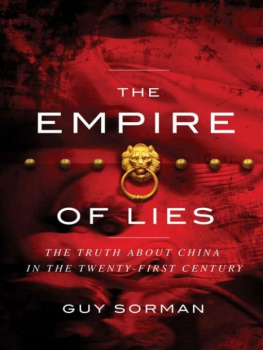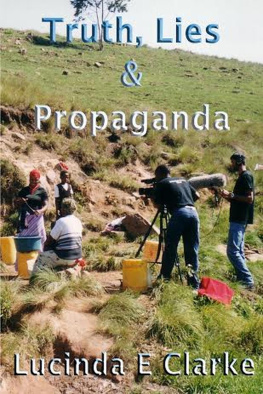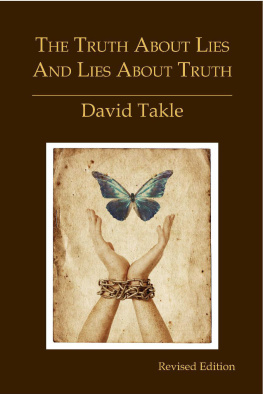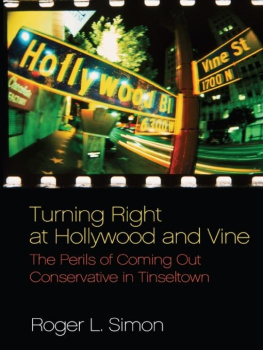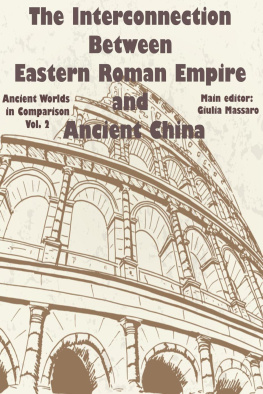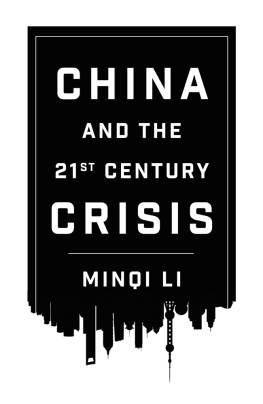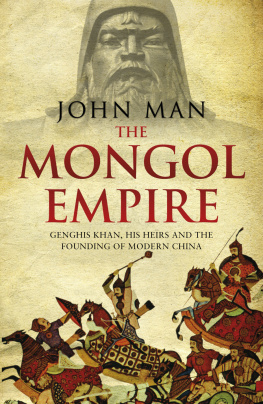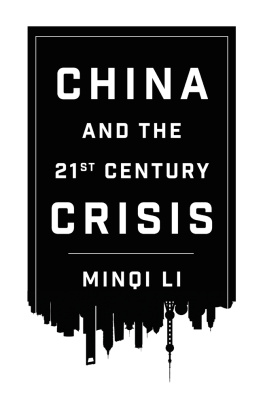Foreword to the American Edition
The Western press is full of stories these days on Chinas arrival as a superpower, some even heralding, or warning, that the future may belong to it. Western political and business delegations stream into Beijing, confident of Chinas economy, which continues to grow rapidly. Investment pours in. Crowning Chinas new status, Beijing will host the 2008 Summer Olympics.
But Chinas success is, at least in part, a mirage. True, 200 million of its subjects, fortunate to be working for an expanding global market, increasingly enjoy a middle-class standard of living. The remaining billion, however, remain among the poorest and most exploited people in the world, lacking even minimal rights and public services. Popular discontent simmers, especially in the countryside, where it often flares into violent confrontation with Communist Party authorities. Chinas economic miracle is rotting from within.
The Partys primary concern is not improving the lives of the downtrodden; it seeks power more than it seeks social development. It expends extraordinary energy in suppressing Chinese freedomsthe media operate under suffocating censorship, and political opposition can result in expulsion or prisoneven as it tries to seduce the West, which has conferred greater legitimacy on it than do the Chinese themselves.
The Wests tendency to misread China dates back to the seventeenth century, when French and Italian Jesuit travelers formed stereotypes that clutter our minds even today. We learned thenor thought we learnedthat the Chinese were not like us. They had no religion, and the notion of freedom was alien to them. They naturally gravitated toward enlightened despotism, as embodied by the philosopher-emperor. Such misconceptions link up across time: Voltaire sang the praises of the mandarins, wishing a similar elite class could rule Europe; leftist intellectuals in the Sixties and Seventies celebrated the heroism of Mao Zedong; and todays business elites happily go along with the Communist propaganda that democracy and free speech are contrary to the Chinese ethos.
Yet with enough patience and will, one can plunge into the real China. Since 1967, I have visited the country regularly, and I spent all of 2005, part of 2006the Year of the Rooster1and then part of 2007 traveling through its teeming cities as well as its innermost recesses, where few Westerners go. I make no claim to know China fully, an impossibly ambitious task. I merely want to record the words and impressions of some exceptional Chinese men and women, who mostly suffer in silence, raising when they can the demand for a free nationa normal nation.
Before the totalitarian reign of Mao Zedong and his immediate successors, never before had an entire nation experienced such intense surveillance. The Chinese not only had to speak alike; they had to think alike with the Communist Party regulating every aspect of private life. Millions were imprisoned and killed.
Things have obviously changed, much for the better. China is no longer totalitarian. Yet the 60-million-member Communist Party, if subtler, remains cruel and omnipresent. I have visited Henan Province, for example, where thousands of families in far-flung villages have died of AIDS. The Party does not merely leave them to perish. It initially denied the epidemic. It arrests Beijing students trying to bring food and medicine to the affected villagers, and accuses them of being enemies of the state. One of theseHu Jia, a thirty-four-year-old human rights activistwas illegally sentenced to house arrest for 300 days in 2006 and 2007 for daring to distribute medicine to Henans suffering villages. Now that the Party finally acknowledges the plague, it claims that it is under control, which unfortunately is far from the truth.
I also managed to visit the city of Linyi in Shandong Province. In 2005, government agents responsible for enforcing Chinas family-planning laws kidnapped 12,000 women from the area, forcing abortions on those who were pregnantin some cases, immersing seven-to eight-month-old fetuses in boiling waterand sterilizing those who werent. Chen Guangcheng, a self-taught blind lawyer, has been languishing in solitary confinement since 2006 because he protested legally against this atrocity. Such acts of cruelty take place throughout the country, especially in the rural areas, where 800 million Chinese live. If the regime works as well as it claims, I often wonder, why does it need to resort to so much violence?
From the point of view of its members, of course, the Communist Party has been successful. It has maintained its grip over China, initiated economic growth, won legitimacy for the country, and lined its members pockets; why should it undertake the risky business of permitting political debate or democratization? Instead it keeps a close watch on any attempt to change its perfect system, brutally suppressing peasant and worker rebellions and imprisoning political bloggersor branding them terrorists and executing them. The real purpose of family planning is not so much to limit the number of children as to keep the rural population on a tight leash. Besides, it provides easy income for officials willing to turn a blind eye to wrongdoing for a consideration. Corruption is rampant at all levels; peasant and entrepreneur alike indulge in it. Every Chinese has to endure some form of extortion.
Whenever I meet a Communist official, I never fail to point this out. The standard reply: We are in a period of transition. Transition to what? Treated as second-class citizens, those living in the rural areas have little hope of escaping their plight. Currently, the economy generates no more than 20 million jobs a year, which means that it will require forty years to restore some dignity to the countryside. Schools and health care could improve the lot of the villagers substantially, but little is being done. The government makes all the right noises about removing injustice and promoting social development, but its deeds dont match its words. Social harmony, the new buzz-word of the Communist Party, remains nothing more than a slogan.
The fact is that in the absence of democracy, there is no compulsion for the Party to help the three-quarters of Chinas population living in its rural villages. Will the new urban middle class press for democracy the way the Koreans and the Taiwanese did? It seems unlikely: city dwellers are wary of peasants, fearing that they would seize power under a democratic government. Will the peasants revolt? Uprisings take place all over the country, but they are sporadic, spontaneous outbursts against corrupt officials, lacking coordination, leadership, and a political agenda. The Partys special police force is ruthlessly efficient in quelling these protests and has no qualms about killing their leaders. The revival of religion in China, Westerners often say, will bring about change: many Chinese human-rights activists are either Buddhist or Christian, and students who convert to evangelical denominations usually get involved in humanitarian activities. But to imagine that their isolated actions will bring about major political change is wishful thinking.
Two things could threaten the regime: a downturn in the global economy or an uncontrolled epidemic. The regimes legitimacy is closely linked to Chinas growth rate, which in turn is pegged to world consumption, especially U.S. consumption. If for any reason Americans began to consume less, the Communist Party would lurch into disarray, and the new middle class might want a regime changebut not necessarily a democracy. A pandemic more devastating than the SARS outbreak of 2003 is also quite possible, given the lack of proper health-care facilities in rural China and the countrys massive internal migration, and history suggests that it could take several months for the central authorities and the international community to learn of it and respond.



